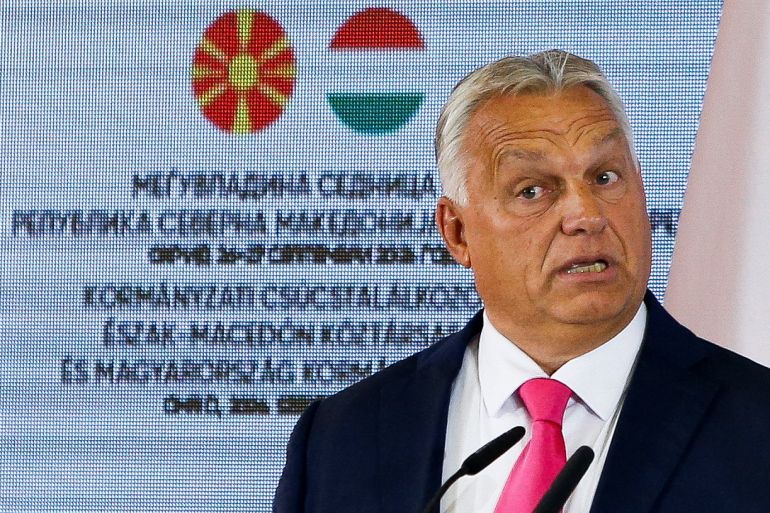EU takes Hungary to European Court of Justice over ‘soverignty’ laws
The European Commission says the ‘soverignty’ laws breached a series of rights enshrined in European Union law.
Hungarian Prime Minister Viktor Orban in Ohrid, North Macedonia, September 27, 2024 [Ognen Teofilovski/Reuters]Published On 3 Oct 20243 Oct 2024
The European Commission says it is taking Hungary to court over its foreign influence laws, which critics have regarded as a tool to silence opposition voices.
The European body said on Thursday that the foreign influence laws violated fundamental rights and freedoms.
“The European Commission decided to refer Hungary to the Court of Justice because it considers its national law on the ‘Defence of Sovereignty’ to be in breach of EU law,” the European Union executive body said.
Hungary has said that “sovereignty” laws were established to criminalise foreign funding for election campaigns and establish a Sovereignty Protection Office with broad investigative powers.
However, the European body has said that the amount of power granted to the new office disproportionately affected civil society organisations, media outlets, and journalists.
It said on Thursday that the law breached a series of rights and freedoms enshrined in EU law, including the right to respect for private and family life, freedom of expression and freedom of association.
‘Electoral trickery’
While the office does not have the power to sanction anyone on its own, its findings can be used to prosecute election candidates who accept foreign funding, potentially facing up to three years in prison.
Prime Minister Viktor Orban’s Fidesz party has previously argued that the law would end “electoral trickery” amid accusations against opposition parties that they received funds from a US-based nongovernmental organisation before the 2022 elections.
The court referral comes after the Commission wrote to Hungary twice: once to air out its grievances and a second time to ask for a reply.
The court action is the latest salvo in a long-running battle between Brussels and Budapest.
In 2022, the commission blocked substantial amounts of money out of concern that democratic backsliding by Orban’s government could put the bloc’s common budget at risk.
Hungary currently holds the EU’s rotating presidency, until the end of December. Right at the start of its term, Orban visited Moscow to discuss prospects for a peaceful settlement in Ukraine with Russian President Vladimir Putin, deeply angering his EU partners.
Many countries are protesting by only sending lower-level officials to meetings held in Hungary.
